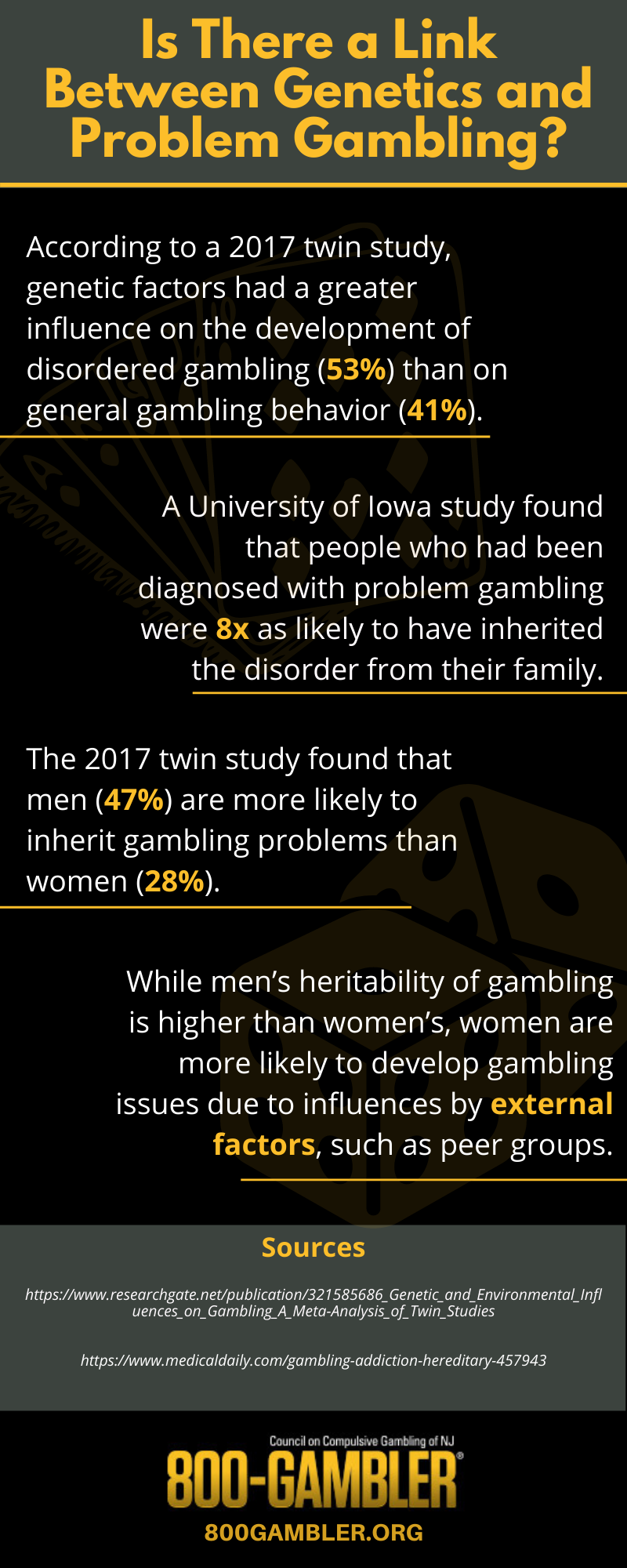The origins of gambling can be traced back several centuries. Many people can enjoy betting without getting themselves into hot water. However, some people struggle with knowing when to step away, which can lead to devastating consequences in their personal, familial, financial, and professional lives.
Why do some gamblers have a hard time saying “no” to another hand or another bet? Were they predisposed to develop a gambling problem due to their genetics, or did environmental factors influence their drive to gamble? This has been a question heavily researched and evaluated by psychologists for the past several years to find the best way to help people with gambling problems.
A Study of Genetic Influence on Gambling
Much like the “nature vs. nurture” debate on behavior, psychologists were interested in finding out if gambling problems are hereditary or influenced by environmental factors. Since 2010, various studies have been conducted on this topic to find out what triggers some gamblers’ proclivity for problem gambling. In these studies, fraternal and identical twins were evaluated to determine the influence genetics and environment had on their gambling behaviors.

Across these studies, it was discovered that genetics and environmental factors played a role in a person’s predisposition for gambling. In fact, according to a 2017 study, a person’s genetic makeup and their unique experiences and peers played more of an influence on their gambling disorder than family environment (i.e., if a family member had a gambling problem).
This is not to say that the environment does not play a role in how gambling behavior presents itself. A person could develop a gambling problem if one of their biological parents had gambling issues. It could be even worse if they were also exposed to problematic gambling behavior during their childhood.
While these studies show that gambling behavior runs in families, further research still needs to be done to understand all the contributing factors.
Other Risk Factors
Gambling can be hereditary to some degree, but other factors increase a person’s risk of developing a gambling problem. For example, sex, age, personality characteristics, and mental health disorders can all play a role.
- Sex: Research suggests that men are more likely than women to inherit a gambling problem from family members. However, women typically develop a gambling disorder because of environmental factors, such as the influence of their friends or family members.
- Age: College-aged and middle-aged people are more likely to experience issues with gambling.
- Personality Characteristics: If someone has competitive traits, they are at greater risk of becoming a problem gambler. If they are also prone to feelings of stress, they may be at risk of taking their gambling too far.
- Mental Health Disorders: People with certain conditions, such as obsessive-compulsive disorder (OCD) and attention-deficit/hyperactivity disorder (ADHD), are more likely to develop gambling issues.
Help for All
Problem gambling is a complex disorder, no matter why it develops. As soon as gambling creates issues in your life or the life of a friend or family member, it’s important to get help. If you suspect that you or a loved one is facing a problem with gambling, calling our helpline at 800-GAMBLER can connect you with the resources and support groups you need to get control of your life again.
Sources:
https://www.medicaldaily.com/gambling-addiction-hereditary-457943
https://www.mayoclinic.org/diseases-conditions/compulsive-gambling/symptoms-causes/syc-20355178



